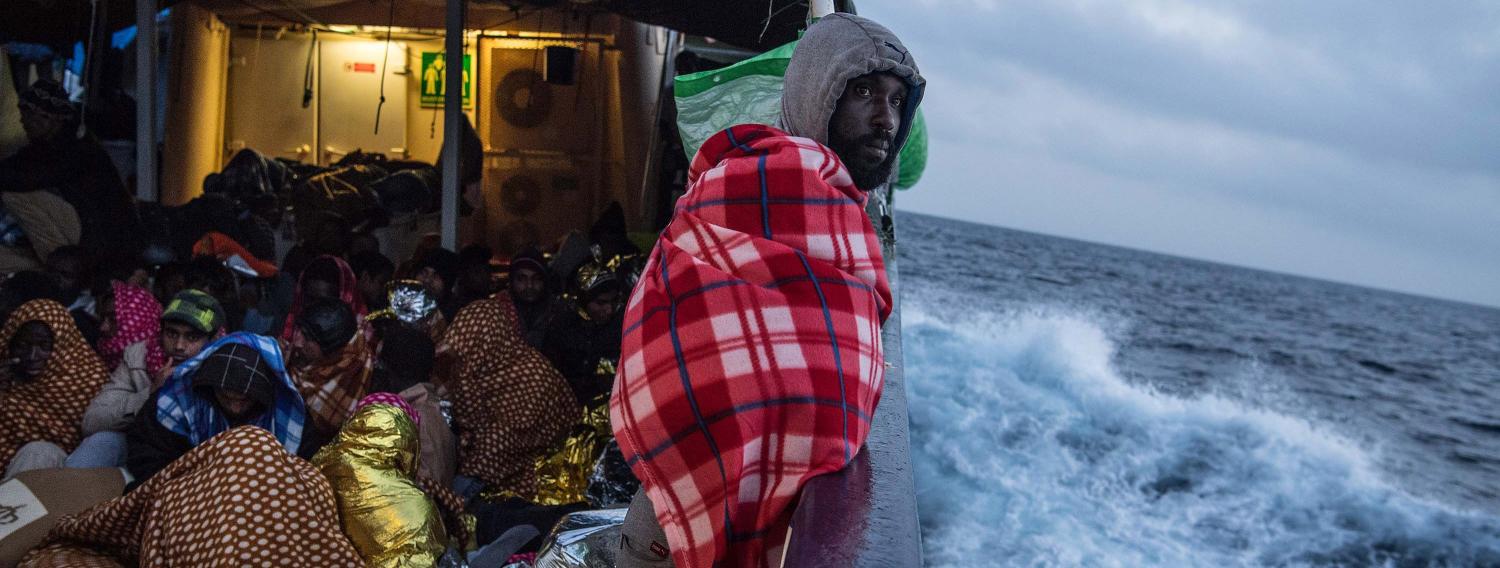Last week, the European Court of Justice (ECJ) ruled that EU member states are not obliged to issue humanitarian visas to asylum seekers at their overseas missions. A humanitarian visa would enable a third-country national at risk of torture of inhumane treatment to apply in situ for entry into EU territory and subsequently trigger protection mechanisms.
The ECJ ruling comes as the EU is considering striking a Turkey-style deal with Libya to stem the flow of refugees. Since 2015, more than 300,000 migrants and refugees arrived in Europe via the Central Mediterranean route; according to the International Organisation for Migration, more than 4500 people died making this journey in 2016.
If the ECJ ruled the other way, it would potentially have provided third-country nationals with the kind of EU-wide, protection-sensitive mechanisms of entry for protective purposes that are currently lacking. At the same time, it would have reduced the flow of refugees attempting to make the dangerous journey across the Mediterranean. However, such a ruling would have caused political headaches for EU member states where anti-immigration public opinion currently prevails.
Criticism of a possible Libya deal has rightly focused on whether the deal would be workable and consistent with international law. An agreement with Libya on returning refugees would likely constitute a violation of the principle to not return or expel refugees to territories where their life or freedom could be threatened, otherwise known as non-refoulement. In Turkey's case such concerns were negated by the EU's controversial designation of Turkey as a safe third country; Libya, currently in the midst of a civil war, can hardly be designated a safe third country. Libya can neither ensure access to effective asylum procedures (there are none) for all persons in need of international protection, nor give safe shelter to its refugees. Conditions in detention centres have been heavily criticised by international organizations such as UNHCR, IOM, and the UN's Human Rights Commissioner Zeid Ra'ad Al Hussein. Most poignant was UNICEF's qualification of the detention centres as 'no more than forced labour camps and makeshift prisons'.
Foreign government support of these detention centres has also been the subject of controversy. The UK's official aid watchdog, the UK Independent Commission for Aid Impact Assessment, has expressed concern that 'the programme delivers migrants back to a system that leads to indiscriminate and indefinite detention and denies refugees their right to asylum'.
A number of alternatives to the Libya deal could be considered if EU member states were serious about improving processes for managing migration from Libya (this is a big 'if' – as Mattia Toaldo has observed, that 'the EU is ready to consider a plan that has such serious flaws tells us that this is not really about improving processes for managing migration, but about reducing – at any cost – the numbers of migrants arriving on European shores').
First, while the ECJ ruling did not instate a EU-wide obligation to issue humanitarian visa, the EU's Visa Code allows individual member states to issue humanitarian visas. Member states that currently issue such visas do so limitedly; a broader and less restricted program could target those that under a direct threat to life and limb.
Second, the EU Temporary Protection Directive already lays down standards for giving temporary protection to persons fleeing their country in the event of a mass influx of displaced persons into the EU. The directive was adopted in the wake of the conflict in the former Yugoslavia in the 1990s. According to the EU, 'it applies in particular when there is a risk that the standard asylum system is struggling to cope with demand stemming from a mass influx that risks having a negative impact on the processing of claims'. However, the provisions of the directive have never been triggered.
More than the Balkan route, the Central Mediterranean route is here to stay. But the excuse that this is a crisis and there are no alternatives on hand is no reason to conclude a Turkey-style deal with Libya. Durable solutions are needed; neither a Turkey-style deal or a humanitarian or temporary protection program would be sufficient. The EU should use the tools at its disposal to find short-term fixes to the crisis; a Turkey-style deal is clearly not that.

